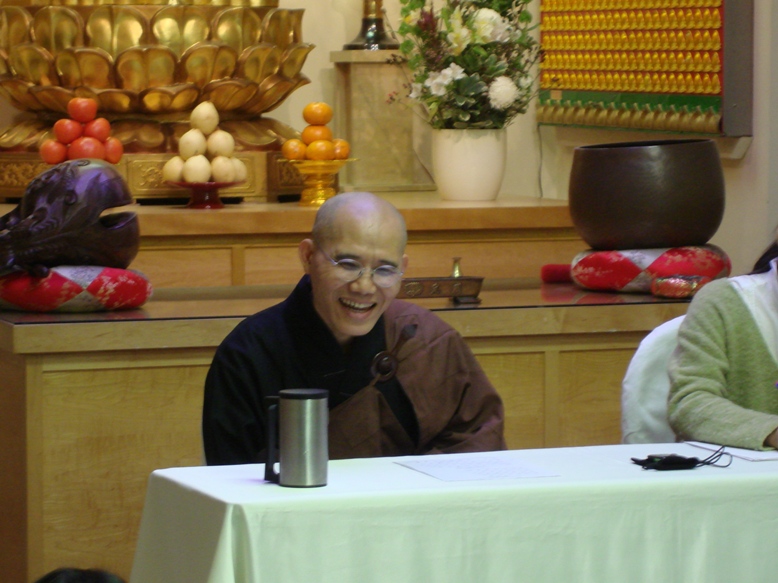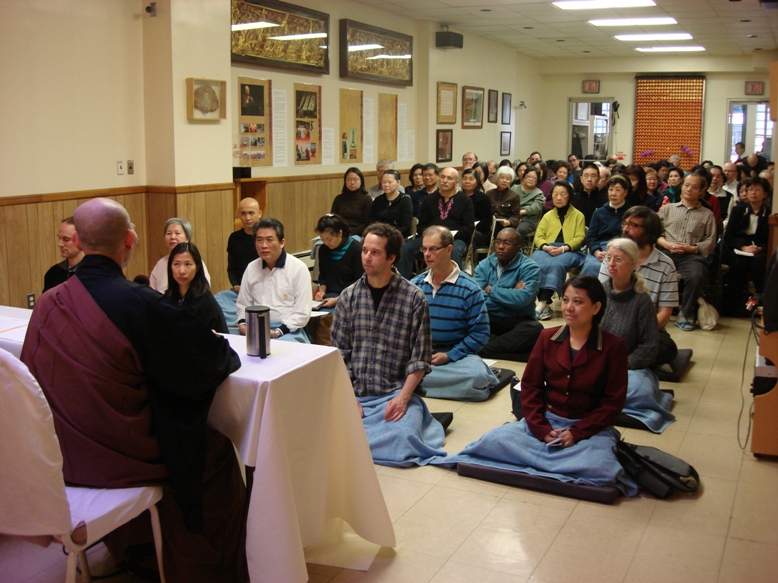| |

Chan Series - Part 5
How to Avoid Karma:
The Physical Body Creates Bad Karma. Does the Dharma Body Suffer?
By Chang Jie
03/15/2009

On Sunday, March 15, 2009, Venerable Guo Xing gave a talk entitled "How to Avoid Karma: The Physical
Body Creates Bad Karma. Does the Dharma Body Suffer?"
According to Venerable, great masters of the past, when faced with death by beheading, graciously give
their heads. They do not experience fear or suffering. There is no idea of the self experiencing
karmic consequences due to past karmic deeds.
When one attains arhatship, all five skandhas are perceived as empty. Compassion is to help sentient
beings see that all five skandhas are empty. Regardless of spiritual attainment, karmic consequences
of karmic actions still will occur. For example, the Buddha experienced headaches and backaches because
of past karmic actions. But because the Buddha perceives that all five skandhas are empty, the Buddha
does not perceive that a self is experiencing headaches or backaches. So, when an arhat receives karmic
consequences, that arhat will receive it gladly.

In our daily life, we may find that we constantly change or transform our karma. An example
of this is the changing of karma because of changes in our mindset or attitude. So, we can say that our karma
is changing constantly.
Ordinary people, when they face a problem, try to change the effects, or symptoms, and not the cause. For example,
people will only try to change the environment but not the mind. In the Buddhadharma, the world is perfect and
already pure. Differentiation of pure and impure, which comes from our mind, is the problem, not the environment
or circumstances. When we see good karmic outcomes, we grasp at it, and when we see bad karmic outcomes, we
reject it. We act and perceive the world based on desire and aversion. For example, when we dream, we
understand that what happens in our dreams is a creation of the mind. Dreams can be seen as a metaphor for
understanding the true nature of emptiness, which is impermanent and changing. There is no emotional attachment,
fear or suffering after the dream.

In the dharma body, there is no form, no good or bad. We think the physical body is the real self, and follow the
five skandhas, good and bad, and act in reaction to the skandhas. We should understand that the dharma body is real,
and not the physical body.
Venerable concluded that every place is a pure land or a hell, depending on the mind. We have a choice—to get rid
of evil actions, commit virtuous actions, and transcend so that there no ideas of virtuous or evil, good of bad.
|
|